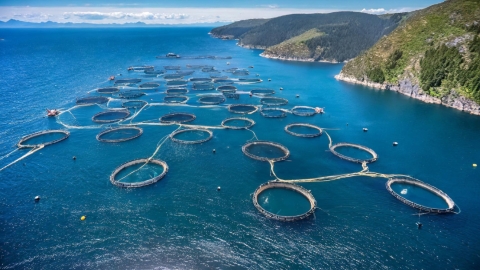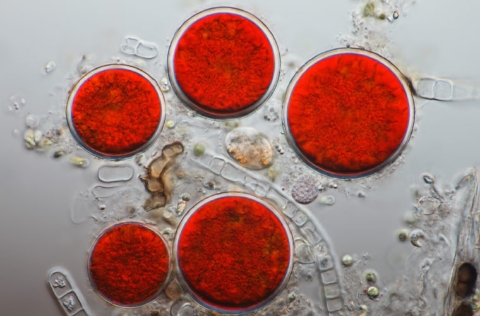
Brewer’s spent grain-the main by-product of the brewing industry-is widely recognised for its high fibre content. However, its direct use in aquafeeds is limited due to poor digestibility and negative effects on fish growth.
To overcome these limitations, researchers from the Universities of Porto, Minho and Vigo have explored solid-state fermentation using the fungus Aspergillus ibericus as a promising approach to replace or reduce conventional plant-based ingredients in the diets of juveniles meagre (Argyrosomus regius).
The study formulated three diets: a control diet with no brewer’s spent grain, one with 10% unfermented brewer’s spent grain, and another with 10% fermented one. All diets were matched for protein and lipid content.
One a ten-week period, researchers evaluated fish growth, intermediary metabolism, digestive enzyme activity, oxidative stress, and intestinal histology.
Published in Animal Feed Science and Technology, the findings show that fermenting Brewers spent grain with this fungus significantly enhances its nutritional profile-increasing protein content by 21% and reducing lipid, cellulose, hemicellulose and lignin levels by up to 49%.
According to the study, while unfermented brewer’s spent grain impaired growth and feed efficiency in juvenile meagre, the fermented version restored three parameters to levels comparable with the control diet. Moreover, no significant differences were observed between the groups in terms of body composition, liver metabolism, or oxidative stress markers.
One of the most notable findings related to gut health. While both unfermented and fermented brewer’s spent grain affected the morphology of the anterior intestine, only the unfermented variant caused marked alterations in the distal section. This suggests that fermentation helps to mitigate the negative effects of fibre on the intestinal mucosa.
The researchers underscore the potential of agro-industrial by products, when properly processed, to contribute to more circular and sustainable feeding strategies in aquaculture. “These findings support the sustainable inclusion of agro-industrial co-products in aquafeeds,” the authors conclude.
Looking ahead, the researchers recommend further investigation into the digestibility of fermented brewer’s spent grain, testing higher inclusion rates, and assessing long-term impacts on fish health and performance.



